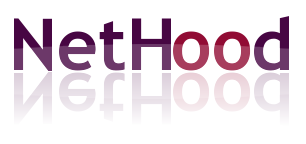
|
about
projects
papers
events
contact
|
A distributed platform based on local RSS-enabled web sites
The RSF digital platform allows trusted partners of a collaborative project, and beyond, to build a collective web site by just tagging appropriately content that is created on their own individual web sites. It builds on the widely known RSS (Really Simple Syndication) protocol, used extensively in the early days of the Internet, which still works but is less used because of the domination of the global social media platforms like Facebook, X, Instagram, etc. We call RSF (Really Simple Federation) the reconceptualization of the RSS protocol as means to aggregate and filter content collectively, instead of just broadcasting.
Central to the implementation of the RSF concept is the Blob software, which offers the possibility to host on low-cost servers custome aggregators of RSS feeds from multiple sources in a way that it is usable, attractive, collaborative, and very flexible. Social media platforms are nothing more than aggregators of content, and blobs will offer the same functionality with the big difference that content will be created on traditional web sites built with popular CMS solutions like Wordpress, Grav, etc. Users and curators of blobs can then choose sources and fine tune the dissemination onto their own websites-networks through the selection of appropriate tags. Not only posts, but also audio/video etc. can be provided through feeds.
What is missing today is the possibility to customize such aggregation. Blob will offer a wide range of customization options through a powerful admin interface that will allow to present and filter content sources in different ways. It will also allow the curated sources embedding - a blob - into another website, similarly to Gmaps or Youtube code snippet. Creating a content aggregator, a social media platform, is made as easy as creating a simple web site!
In addition to its inherent scalability, there are three very concrete benefits from this distributed approach.
Data ethics
The fact that the content of an RSF platform is created locally on web sites fully controlled by the project partners, creates a de facto data protection layer, since data are stored “locally” and only what is anyway public is shared at the aggregation layer.
Notice that in all centralized platforms, although not necessary content is very often created directly on those platforms, since such content is treated more favourably for obvious reasons.
Finally, it is important to note that the RSF ecosystem can be designed to promote online exchanges that are not addictive and emotional but evolve at a slower pace which is more healthy, more sustainable, and more fulfilling. The rhythm of online activity imposed by platforms like Twitter is simply not human.
Collective governance
The blob software empowers its users by transforming them to a collective curator of existing content transforming an RSF web site to a boundary object that facilitates the creation of common languages around complex topics between a potentially diverse group of people.
Although this governance layer is not yet technically implemented, the fact that the aggregation of content is becoming transparent it creates exactly the need for governance, something it is truly unthinkable in platforms like Facebook, which does not even allow a single user to customize their own news feed.
Open source
The fact that blob is a free, libre, and open source software strengthens significantly the above two points because of the inherent transparency of such software. So, the promise for ethical data treatment and the potential of common governance is hardwired in the code itself which is permanently available for checks and improvements.
In addition, FLOSS software makes the development of an RSF platform rather economical and resilient, being able to run even on a small home server. Of course, the financial cost is not zero as it is often for platforms like Facebook, which ask for a very high price for the convenience they offer, our private data and sovereignty.
Running instances
You can take a look at the current version of the platform aggregating content from the partners of a recently concluded Create Europe project, C4R (Cultures 4 Resilience) on NetHood's development server, called Lennon, here: https://cultures4resilience.net
